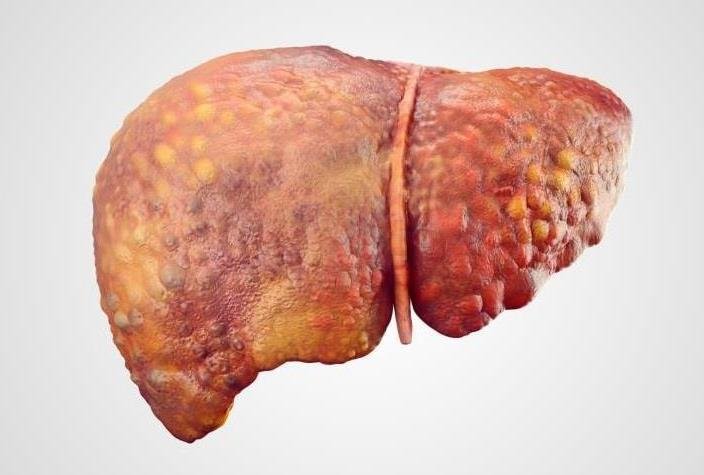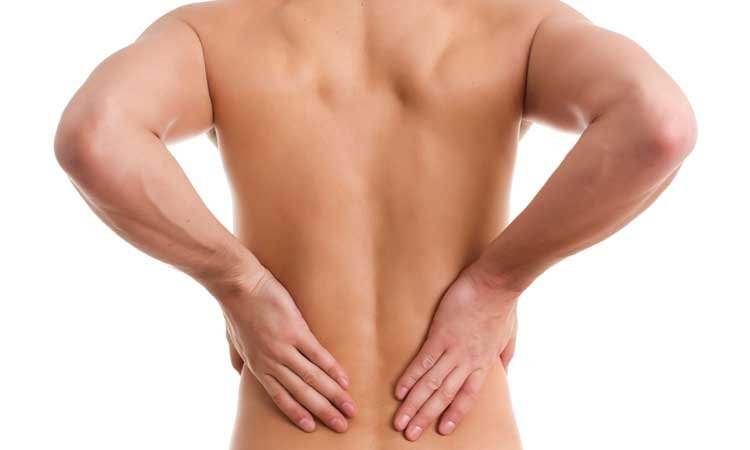The liver is the largest organ in our body, but in some way, it is also the most silent. Liver pathologies often have no external symptoms and therefore are difficult to detect.
That our liver is found and functioning in good condition is essential for health (it is, to put it in some way, our purification machine), and therefore it is convenient to know the possible problems it may suffer. One of the most common is fatty liver.
What is the fatty liver?
The scientific name is hepatic steatosis, and it is a disease in which the liver accumulates fat. Depending on the severity of each case, this accumulation affects the functions of the liver, causing inflammation and damage to the cells and tissues of the organ, and may end up leading to cirrhosis (a chronic pathology) or liver cancer.
There are two types of fatty liver: non-alcoholic fatty liver and fatty alcoholic liver or alcoholic fatty liver disease.

Non-alcoholic fatty liver
As its name suggests, this problem is not related to alcohol consumption, and doctors are not sure what causes it, but if it is known that suffering from diabetes, obesity, hypertension and other problems related to lifestyle are factors of risk.
Depending on its severity, we speak of simple fatty liver, in which there is fat in the liver but the tissues are not damaged and the functions are not affected, or nonalcoholic fatty steatosis, in which the cells are damaged and there may be inflammation , which may lead to fibrosis of the liver tissue and permanent damage.
Alcoholic fatty liver
The liver is the organ that is responsible for breaking down alcohol so that it can be discarded, but in the process harmful substances are produced for the organ itself that generate inflammation and cell damage. The more alcohol you consume, the more damage you do to the liver.
Alcoholic fatty liver is the first stage of alcoholic liver disease, which can continue to develop in the form of alcoholic hepatitis and cirrhosis.
Causes of fatty liver
As we have explained, alcohol is a known cause of a certain type of fatty liver, and therefore its consumption should always be as low as possible, or even nil. There are many alternatives to alcoholic beverages that do not cause so much damage to the body.
Beyond alcohol, the specific causes of fatty liver are unknown, although it seems to be closely related to our diet and specifically to the consumption of fats.
There are certain risk factors of fatty liver that increase the chances of suffering from it: suffering from type 2 diabetes or prediabetes; suffer from obesity; be a man of middle age or older, although the disease can also occur in children and young people; have high levels of fats in the blood, such as cholesterol or triglycerides; have high blood pressure; some anti-cancer drugs, as well as corticosteroids; lose a lot of weight very fast; some infections, such as hepatitis C.
Although alcohol has been the main cause of fatty liver for decades, in recent years there has been an increase in cases of nonalcoholic fatty liver in children due to overweight and obesity related to the consumption of ultra-processed foods, fats and sugars .
That is why it is important to teach healthy habits and to lead by example: healthy eating and avoiding sedentary lifestyles.
How is fatty liver detected?
As we said, the problem of many liver pathologies is their discretion: in many cases they hardly show symptoms and that makes it more difficult to detect them.
In the case of fatty liver, the diagnosis usually occurs after abnormal results in medical tests or tests, which make the doctor suspect of any pathology and which is the one that proves that the liver is working or not as it should.
Sometimes some symptoms are visible. For example, unjustified fatigue, pain in the right upper abdominal area or, in the most striking cases, jaundice, that is, yellowing of the skin

In the case of alcoholic fatty liver, the first step is to stop alcohol completely. Regarding non-alcoholic fatty liver, the first medical recommendation is to lose weight, since that can reduce the amount of body fat and with that the amount of fat in the liver.
If the cause is some medication, you may have to stop taking it. But it is a decision you should not make without the advice and supervision of a doctor.
When a case of fatty liver becomes worse and ends up leading to hepatitis or cirrhosis, in many cases there is a need for specific treatments and surgical interventions to solve and prevent damage.
To avoid reaching that point the best thing is prevention: reduce your alcohol consumption to the maximum, follow a balanced diet, keep your weight at bay and practice a healthy lifestyle.
ps: information researched on the internet and that I wanted to share since I was detected fatty liver due to the abuse of fast food and its different sauces and adresse
Congratulations @baddaddy! You have completed some achievement on Steemit and have been rewarded with new badge(s) :
Click on any badge to view your Board of Honor.
For more information about SteemitBoard, click here
If you no longer want to receive notifications, reply to this comment with the word
STOP